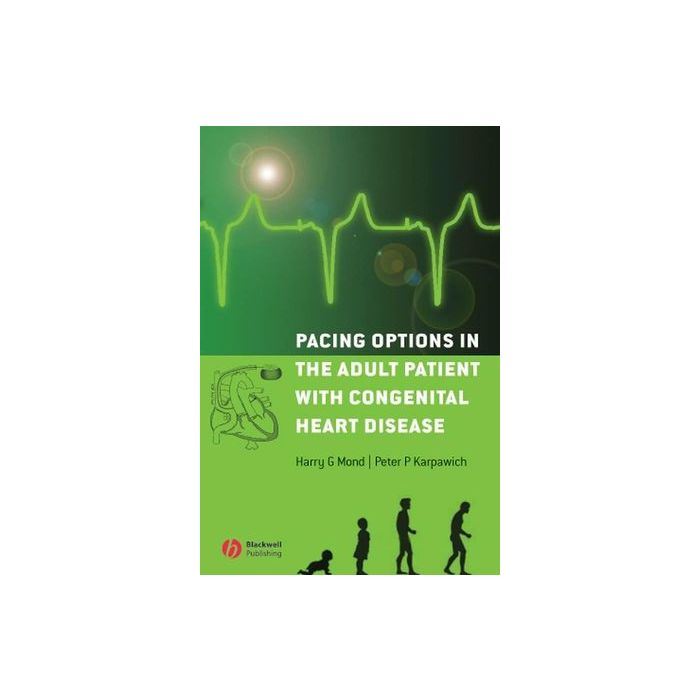Pacing Options in the Adult Patient with Congenital Heart Disease [Mond; Karpawich - Wiley - Blackwell]

- ISBN/EAN
- 9781405155694
- Editore
- Wiley - Blackwell
- Formato
- Cartonato
- Anno
- 2006
- Pagine
- 152
Disponibile
66,90 €
Finally, a pacing book dedicated to the adult patient with CHD. Drawing on their vast experience, Drs. Mond and Karpawich join forces to show you what to do, how to do it, and what to avoid.
Building on more than 60 years of device therapy Pacing Options in the Adult Patient with Congenital Heart Disease leads you through the many congenital heart defects now seen in adults. This essential resource:
Describes the various anatomical characteristics of repaired and non-repaired congenital heart defects and compares these with the normal anatomy, allowing you to easily identify the differences
Guides you through the implant techniques, highlighting the specific problems that might be encountered and providing proven techniques to overcome technically difficult anatomical variations in patients with and without congenital heart disease
Throughout the book, schematic diagrams of the diverse anatomy of the congenital heart support the textual descriptions, and x-rays and fluoroscopic images illustrate the physiology and maximize understanding.
Maggiori Informazioni
| Autore | Mond Harry G.; Karpawich Peter P. |
|---|---|
| Editore | Wiley - Blackwell |
| Anno | 2006 |
| Tipologia | Libro |
| Lingua | Inglese |
| Indice | 1 Know the anatomy. 2 Transvenous pacemaker implantation. 3 The pulse generator or ICD pocket. 4 Epicardial or epimyocardial pacing. 5 Problems with right ventricular apical pacing. 6 What type of lead fixation device do I use?. 7 Consider steerable stylets or catheters. 8 Safety in numbers – the belt and braces technique. 9 Do old leads need extraction?. 10 Stenosed venous channels. 11 Use of the coronary venous system. 12 Consider growth in teenagers. Part 2 Patients, principles and problems. Section A No previous cardiac surgery: pacemaker/ICD required. 13 Congenital atrioventricular block. 14 Congenitally corrected L-transposition of the great vessels. 15 Congenital long QT syndromes. Section B No previous cardiac surgery: pacemaker/ICD a challenge. 16 Atrial septal defects and patent foramen ovale. 17 Persistent left superior vena cava. 18 Dextrocardia. 19 Ebstein’s anomaly. Section C Previous corrective or palliative cardiac surgery. 20 D-Transposition of the great vessels. 21 Septal defects including tetralogy of fallot. 22 Repaired Ebstein’s anomaly. Section D No venous access to ventricle. 23 Univentricular heart. Concluding remarks. References. Index |
Questo libro è anche in:
